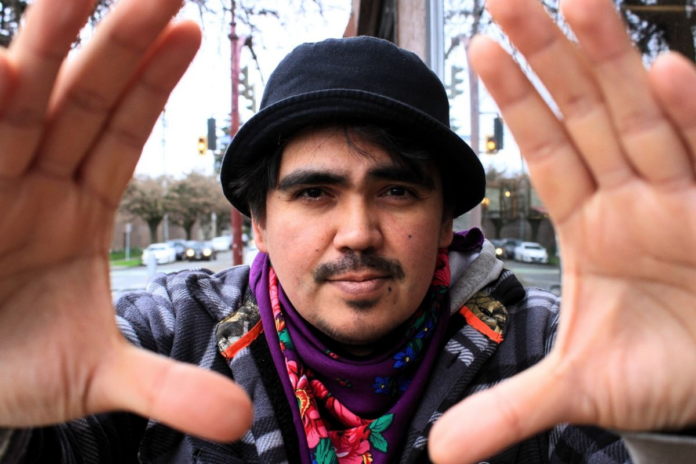Alex Taylor-McCallum is teaching a course under the Victoria Conservatory of Music
Every Friday at 9:45 a.m., Alex Taylor-McCallum walks into a room at Victoria’s New Roads Therapeutic Recovery Community ready to share his most vulnerable self with a group of men who have struggled with addiction.
He sits in the ‘circle of trust’ and initiates a series of check-ins in which the nine men in the room alternately share their thoughts.
The 32-year-old award-winning artist and advocate of Indigenous culture is facilitating ‘ Healing & Story Telling through Hip Hop Lyricism ’ at the recovery facility run by Our Place Society.
The 16-week class/workshop run through the Victoria Conservatory of Music, Taylor-McCallum says, is an extension and new chapter in his life and journey as a music artist.
Over a cup of coffee in one of his favourite cafes along Quadra Street, Taylor-McCallum sat down with Black Press Media before his second class and began to wax poetic about his new teaching gig.
He admits how big of an impact it is for him to be facilitating the workshop with people who are actively working on getting sober and like him, are continuously reflecting on the past and trying to heal in the present for a better future – for their kids and for themselves.
“It’s my hope to share my own story and help others heal through writing by helping them express their grief. I’ve been through some really dark stuff like they have, but all of our stories are different, unique, significant and distinct.”
The Kwakwaka’wakw and Nuu-chah-nulth hip hop artist, who performs under the stage name Pin.Dee.In, says he was in a really deep dark place for years. He started using drugs and alcohol at the early age of 11 and this year marks three and a half years of his sobriety.
“It was really difficult to overcome my alcoholism, but once I began using my creativity to express myself, I found a lot of healing.”
Now a father of two, he says writing and music have become the pillars that have supported him during his recovery process, allowing him to stay sober.
“I’ve listened to a lot of hip hop for years and I just find, that more than other music genres, it allows me to express myself quite a lot through words in English, although I do like to incorporate my traditional languages into the lyrics as well.”
He says there’s something about hip hop that enables him to compose lyrics to tell stories from an Indigenous perspective and fit them to a beat.
Growing up around Quadra Village, he admitted to witnessing the detrimental effects of drugs and alcohol on his family, especially his mother. He started listening to hip hop during those years when he was having difficulties as a child.
Incidentally, a song that resonated with him back then, was Tupac’s ‘Keep Ya Head Up’ which sampled the song ‘Ooh Child’ by soul group the Five Stairsteps. “Keep ya head up, ooh, child, things are gonna get easier, keep-keep ya head up, ooh, child, things’ll get brighter.”
“It is one of my top examples of a song that was written and made almost with the purpose of uplifting a community that’s struggling.”
The multi-hyphenate artist-painter-singer-muralist-actor-filmmaker hopes to bring this element into his class and the idea that music can be a powerful healing tool.
He was thrilled to see that students had already come up with ideas for what they wanted to do and had even written lyrics on the spot on the first day of class. One of them shared a snippet of what he has been working on – a story of his life:
“The mental state is on a journey.
It’s trying to turn me, burn me and butter turn me.
I need help. Thoughts are not clear. I’m on my way.
I’m getting near, to what, I can’t tell,
These drugs don’t go to me, a witch is spelled.”
“After talking to them, I really have a clearer understanding of how I want the rest of the workshop sessions to go. If they feel compelled to write a spoken word piece, then I’ll be supporting that. If they feel compelled to play an instrument, I want to facilitate that. Perhaps incorporate their musicianship into the beat we create.”
The possibilities are endless, he said.
Matthew Duquette, manager of New Roads men’s program, believes the course is hugely beneficial for their residents.
“Some of our guys have a relationship with writing stemming from their school days. It means work, assignments, being graded and judged. Programs like this one and intensive journalling really use writing as a form of exploration, creation, and expression. It’s powerful.”


